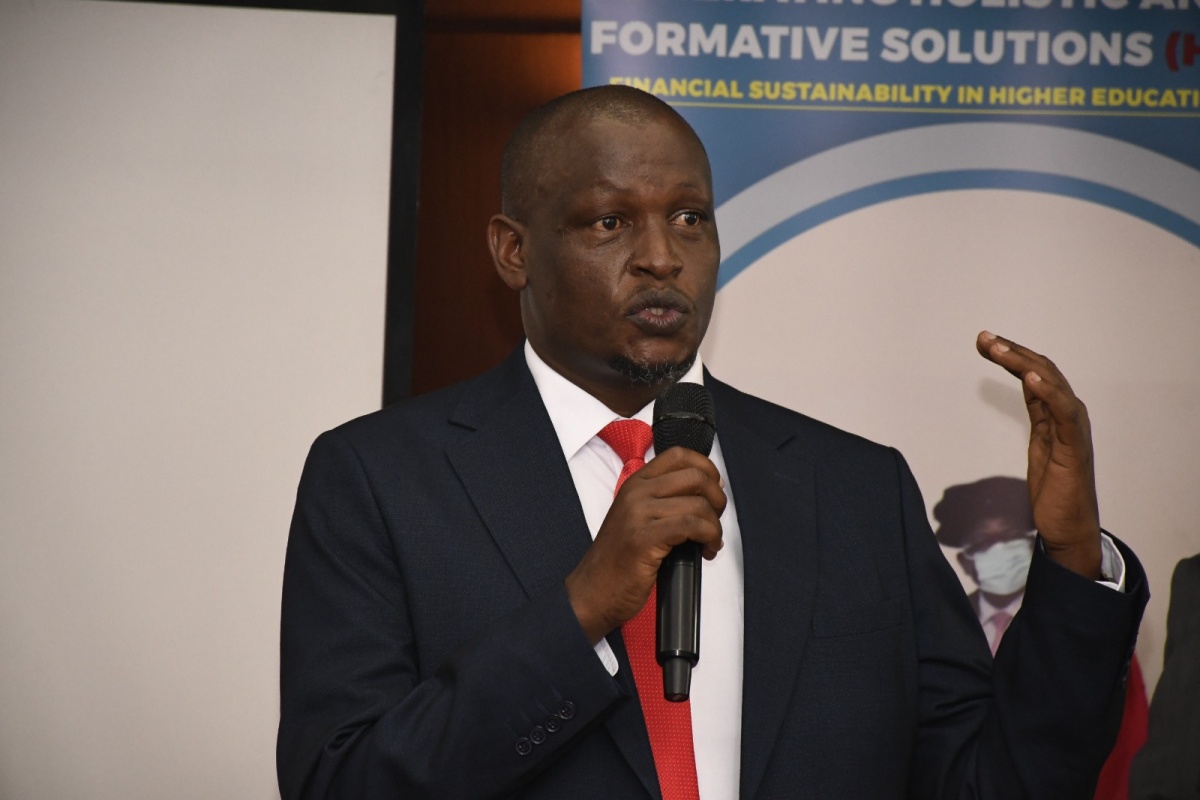Kenyan Universities Tackle Financial Crisis: Groundbreaking Study Reveals Path Forward
In a landmark event that could reshape the future of higher education in Kenya, the University of Nairobi hosted a pivotal workshop on Thursday, August 1, 2024, to disseminate and validate the findings from the Higher Education Institutions Generating Holistic and Transformative Solutions—Financial Sustainability (HEIGHTS-FS) study. The HEIGHTS-FS study, funded by USAID, has laid bare the financial challenges plaguing Kenyan universities and offers a glimmer of hope with its innovative recommendations.
The study, part of a larger international project including Indonesia and the Philippines, has unearthed strategies that could revolutionize how Kenyan universities manage their finances. Dr. HyoJung Jang from the University of Notre Dame and Prof. Peterson Magutu from the University of Nairobi presented findings that generated discussions on how best to address the financial challenges. Their presentation sought to answer the critical question: "What strategies are governments and HEIs pursuing to mobilize public and private resources to strengthen the financial sustainability of higher education systems and institutions, and what strategies are regarded as most effective in Kenya?"

speaking at the opening ceremony
During the opening ceremony, Dr. Julius Ssentongo of the Resilient Africa Network - Makerere University, underscored the significance of the study. Christine Veverka, Director of the Education and Youth Office at USAID, highlighted the critical role of higher education institutions in generating knowledge and driving policy shifts through research.
Prof. Stephen Kiama, Vice Chancellor of the University of Nairobi, emphasized the timeliness of the study. "Today's workshop serves a double-edged objective of validating and disseminating the research findings and recommendations within our Kenyan context. I have a special interest in the financial sustainability of HEIs in Kenya. We are facing challenges like unreliable HEI financing models, overreliance on government capitation and student fees as sources of financing, and weak financial oversight," he stated.
Prof. Margaret Hutchinson, Deputy Vice Chancellor for Research, Innovation & Enterprise, highlighted the collaborative nature of the project. "The University of Nairobi is the local implementing partner of a project titled Supporting Holistic & Actionable Research in Education (SHARE) - Co-Creating for Change: Learning Becomes Service to Justice. We expect this study to develop policy briefings on innovative financial sustainability strategies and implementation for HEIs in Kenya."
The workshop provided a platform for in-depth discussions on financial sustainability challenges and potential solutions. Participants, including academics, policymakers, and industry representatives, contributed valuable insights to inform future strategies for strengthening the financial health of Kenyan higher education institutions.
But it was Mr. Darius Ogutu, Director of University Education, who truly electrified the room. He challenged the researchers to "outline workable solutions that can be implemented to change the financial standing of all HEIs in the country." He challenged experts in the room to generate a prototype / a financial policy guiding framework that can be applied across the country.His call to action underscored the urgent need for practical, implementable strategies.
The principal investigator Prof. Magutu indicated that an evidence-based policy brief on “Financial Sustainability of Higher Education Institutions in Kenya” shall be shared with the Ministry of Education once the study is complete.
Moderated by Prof. Justus Inyega, Director of CEPA, the workshop was attended by Prof. Jeremiah M. Kalai, Dean of the Faculty of Education, Prof. Hellen Inyega, Prof. Boniface Ngaruiya, as well as representatives from Strathmore University, Kenyatta University, Mount Kenya University, among others.
The workshop served as a crucial step in validating the study's findings and recommendations, ensuring they are well-aligned with the realities and needs of Kenya's higher education sector. As the country grapples with challenges in HEI financing, the insights from this research are expected to inform policy decisions and institutional strategies moving forward.
Background Information: About the HEIGHTS-FS Study
The HEIGHTS-FS study, conducted from 2021 to 2023, was funded by the USAID Center for Education and involved partnerships with the Pulte Institute for Global Development in the Keough School of Global Affairs, the Global Center for the Development of the Whole Child at the University of Notre Dame, the Resilient Africa Network, the University of Nairobi, the Center for Collaborative Research (CCR) | SMART CITY Universitas Indonesia, and the Philippine Institute for Development Studies.
This study aims to produce evidence-informed strategies to strengthen financial practices within higher education systems, especially in low- and middle-income countries. It examines how governments and HEIs mobilize public and private resources amidst system-wide challenges and opportunities.
Research Goals
The primary goal is to inform USAID's strategic planning, activity design, and professional development in higher education financial sustainability. The findings and recommendations from the study are intended to benefit USAID Missions in Kenya, Indonesia, and the Philippines, as well as other stakeholders involved in higher education.
